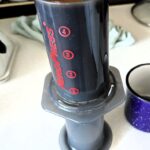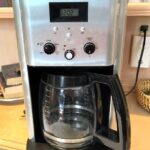Last Updated on February 6, 2025 by Karen
Learn the best ways to dissolve coffee grounds in a clogged drain with simple methods like hot water, baking soda, and vinegar. Discover tips for preventing future blockages and maintaining your plumbing system.
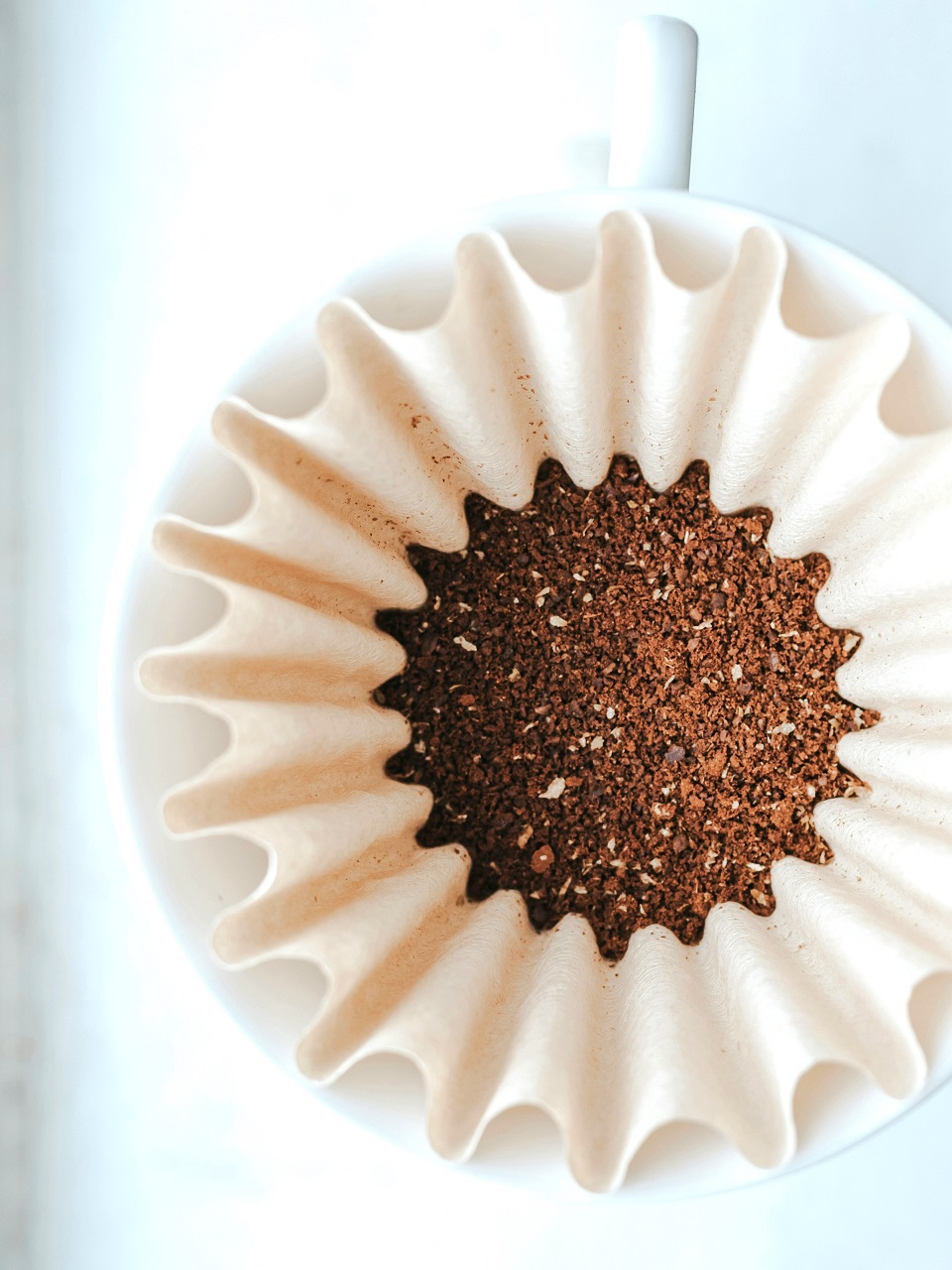
Coffee grounds, while essential to brewing that perfect cup of coffee, are also a leading cause of clogged drains. Many people unknowingly flush their used coffee grounds down the sink or garbage disposal, leading to issues such as slow drainage, blocked drains, and even severe grease buildup. The good news is that with the right approach, you can clear these blockages, prevent further issues, and ensure your drain system remains free of coffee-related clogs.
In this post, we’ll explore different ways to dissolve coffee grounds in a clogged drain and how to prevent future blockages.
Why Coffee Grounds Cause Clogged Drains
When coffee grounds are flushed down the kitchen sink, they combine with organic materials such as grease, soap scum, and food waste. This creates a thick sludge that can block the pipes and disrupt the flow of water. Unlike instant coffee or coffee beans, ground coffee beans are fine and tend to stick together, making them harder to wash away. Over time, this build-up can cause slow drainage or lead to completely blocked drains, especially if you don’t use enough water to clear them.
Hot Water: The First Step to Fixing a Blocked Drain
If you’re dealing with a blocked drain caused by coffee grounds, hot water is one of the best ways to dissolve the grounds. The heat helps break down the organic matter and allows the grounds to move through the drain more easily. Simply pour boiling water into the kitchen sink drain in stages, allowing each pour to sit for a few seconds. This method works best when you’re dealing with small amounts of coffee grounds, especially when there’s not much coffee residue left in the pipes.
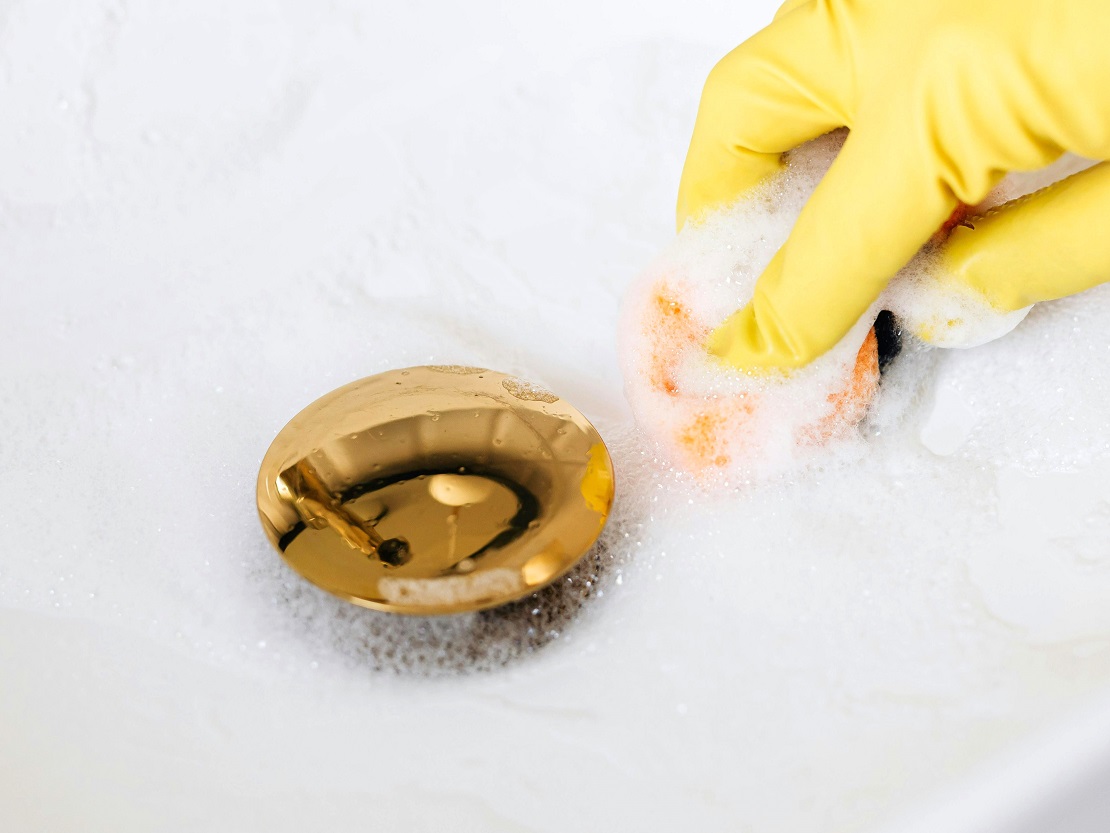
Baking Soda and Vinegar: A Simple Yet Effective Solution
Another simple and natural solution involves the combination of baking soda and vinegar. This non-toxic solution works well for breaking down coffee grounds by creating an acidic reaction. To use this method, pour half a cup of baking soda down the blocked drain, followed by a cup of vinegar. Let the mixture sit for 10-15 minutes to break down the coffee grounds, and then rinse with hot water. This mixture can also help address other issues like the buildup of food scraps, grease, and soap residue.
Drain Snake: For Severe Blockages
When hot water and vinegar don’t do the trick, a drain snake may be necessary for tackling a severe coffee grounds clog. A drain snake, or auger, is an effective tool for dislodging coffee grounds that are stuck deeper within your drain system. If you have the right equipment and some basic plumbing knowledge, you can use a drain snake yourself. However, for tougher blockages or larger systems, such as septic systems, it’s often best to seek professional plumbers for advice.
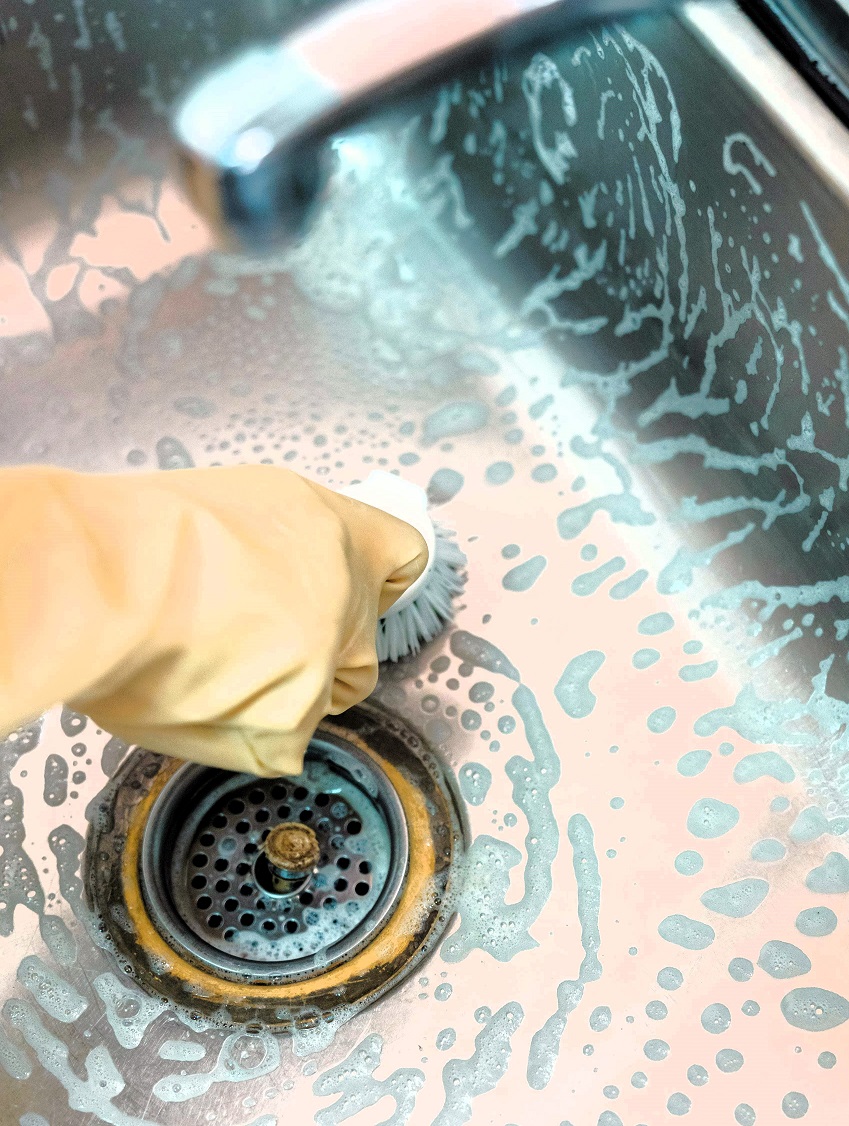
Preventing Clogged Drains from Coffee Grounds
The best way to avoid clogged drains caused by coffee grounds is to stop flushing them down the sink in the first place. Instead, consider adding the remaining grounds to a compost bin or compost pile, where they can serve as a great source of nitrogen for plants. Used coffee grounds are organic materials that contribute essential nutrients to your garden’s soil and can even help with plant growth. Coffee grounds also make an excellent addition to your compost because they contain nitrogen, which is a vital component for healthy plant growth.
If you prefer to dispose of your coffee grounds through the garbage disposal, make sure to avoid overloading it, and always run enough water to flush the grounds through. It’s also essential to remember that composting is not the only alternative; many people choose to save their used coffee grounds in an airtight container for future uses, including body scrubs or as a natural repellent for fruit flies.
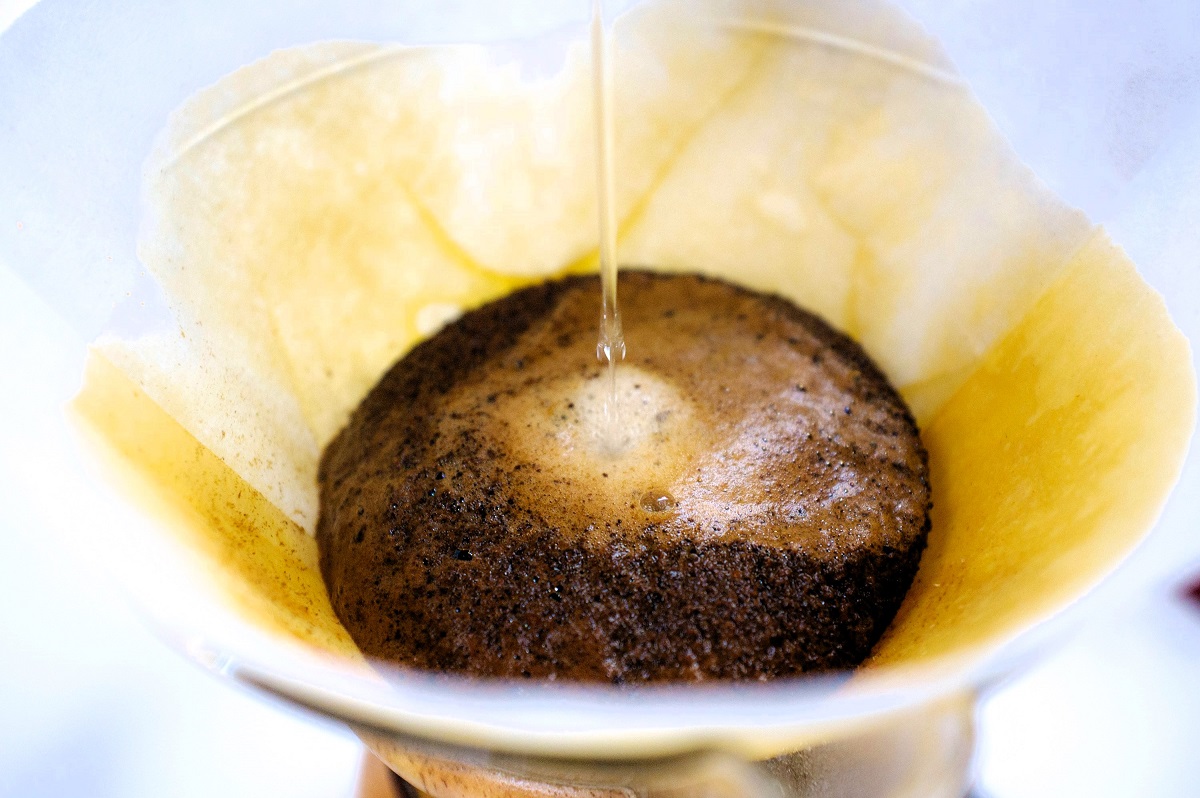
Other Preventive Measures: Using a Fine Mesh Strainer
One of the most straightforward and effective ways to prevent coffee grounds from entering your kitchen sink drain is by using a fine mesh strainer or metal filter during the brewing process. A fine mesh strainer will catch most of the grounds and prevent them from making their way down the drain. For coffee shops or people who regularly use a coffee machine or French press, this simple step can go a long way in keeping your kitchen sink drain free of blockages.
Dealing with a Drain Clog in the Future
If you find yourself dealing with a blocked drain in the future, there are several effective methods to clear it, depending on the severity of the clog. If you notice that your kitchen sink is draining slowly, using a sink plunger can sometimes provide a simple solution. In more severe cases, chemical drain cleaners (though not recommended for septic tanks) may be able to break down the clog. However, it’s always best to consult with professional plumbers if you notice persistent clogs or severe issues with your plumbing system.
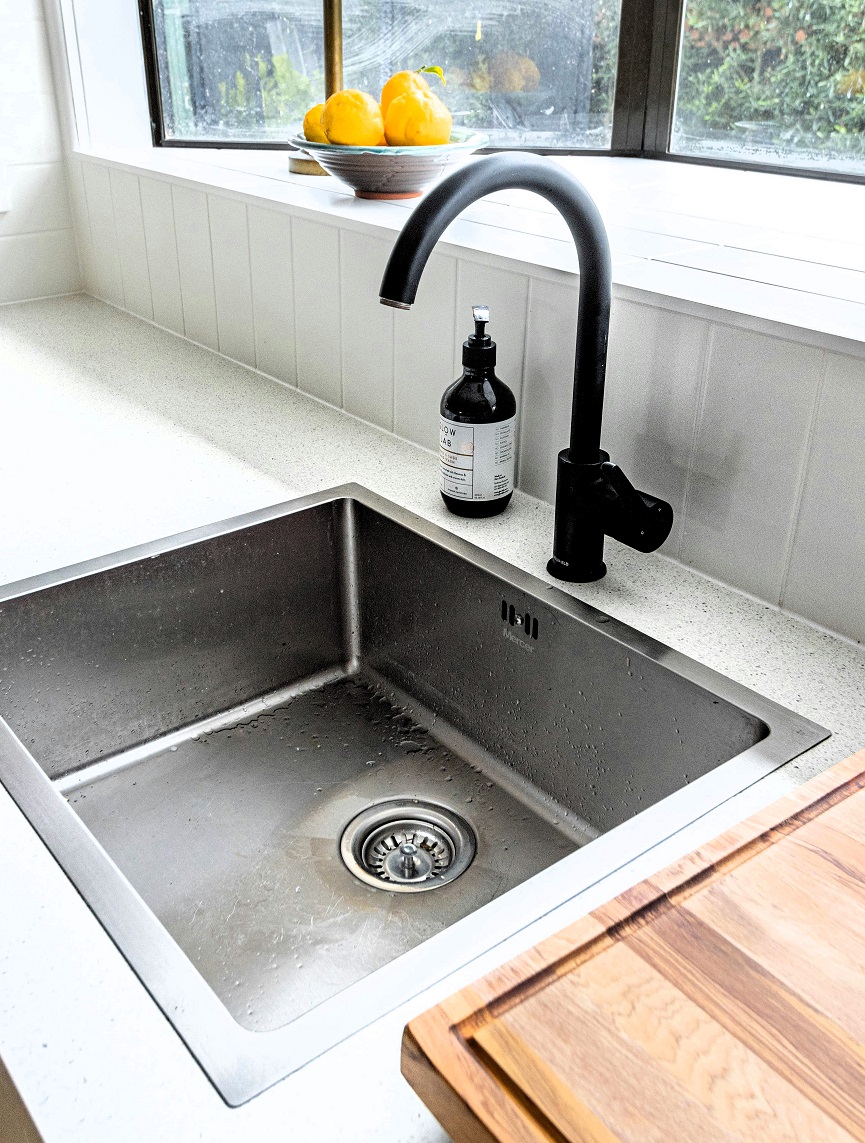

Alternative Methods: The Benefits of Coconut Oil and Baking Soda
In some cases, other substances like coconut oil can be helpful in breaking down grease and coffee grounds. Mixing equal parts of coconut oil and baking soda can create a paste that is easy to pour into the drain. This method helps break down grease and coffee grounds over time while providing additional benefits for your pipes.
Acetic acid from vinegar is also an effective solution for breaking down organic materials, including coffee grounds. If your drain is blocked with remaining grounds, using a drain snake along with natural alternatives like vinegar and baking soda can work wonders.



The key to preventing clogged drains caused by coffee grounds is regular maintenance and proper disposal of your used grounds. Whether you choose to compost the grounds or dispose of them in the garbage, using a fine mesh strainer during brewing can also help keep your plumbing system clear. If you find that your kitchen sink drain is blocked, simple solutions like hot water or baking soda and vinegar may help clear the clog. In the event of a more severe blockage, don’t hesitate to reach out to professional plumbers for assistance. Taking preventive measures today can go a long way in preventing future clogs and plumbing problems, ensuring your drain system stays in top shape for years to come.


